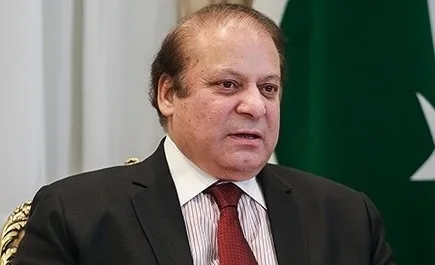The Court reserves its judgment on pleas to transfer the Toshakhana case to the National Accountability Bureau, with a decision expected on October 14
In a significant development for Pakistani politics, the Accountability Court reserved its judgment on September 26, 2024, regarding the Toshakhana case involving former Presidents Asif Ali Zardari and Yousaf Raza Gillani, as well as former Prime Minister Nawaz Sharif. The court proceedings centred on pleas from the defendants seeking to transfer the case back to the National Accountability Bureau (NAB), claiming it no longer falls under the court’s jurisdiction following amendments to the NAB Ordinance 1999.
Judge Abida Sajjad presided over the hearing, where Zardari’s counsel, Farooq H. Naek, and Nawaz Sharif’s lawyer, Qazi Misbahul Hassan, presented their arguments. The defence argued that the value involved in the case—approximately Rs80.5 million—was below the threshold of Rs500 million, thus rendering it outside the court’s jurisdiction. They requested that the matter be referred back to the NAB for further consideration.
During the proceedings, Judge Sajjad inquired whether the parties agreed that the court lacked the authority to handle the case. Naek emphasized that Zardari had not been granted presidential immunity when the charges were initially filed, and he cautioned that transferring the case elsewhere would imply a substantive discussion of its merits, which the court is not authorized to undertake under the new amendments.
Qazi Misbahul Hassan reiterated the need for the case to return to the NAB, referencing a precedent where a similar case had previously been returned to the bureau and later reintroduced to the court by a former chief justice.
The NAB prosecutor added complexity to the proceedings, indicating that the court had already granted immunity to Zardari and arguing that the case should remain on hold for him while proceeding against Nawaz Sharif. The prosecutor noted that there were allegations regarding a bounced cheque linked to Zardari, asserting that if the case did not fall under the court’s jurisdiction, it would not merit further discussion.
As the hearing unfolded, the defence maintained that the case should be dismissed on jurisdictional grounds, and Naek argued that retaining the case within the court’s purview would violate legal principles. The NAB prosecutor countered that the case should be separated for Zardari and Sharif, with separate proceedings for each.
After hearing extensive arguments from both sides, Judge Sajjad reserved her verdict, with the decision expected to be announced on October 14. This case reflects the ongoing legal battles faced by prominent political figures in Pakistan, emphasizing the intricate relationship between the legal system and the political landscape.
Analysis
Political Perspective:
The ongoing legal challenges faced by Zardari and Nawaz Sharif illustrate the contentious nature of Pakistani politics, where accountability often intersects with political rivalry. The decision to reserve judgment signals a cautious approach from the judiciary, balancing the need for legal clarity against the backdrop of potential political repercussions. The case’s outcome could significantly impact public perception and political alliances, especially as both leaders represent powerful factions within the country.
Social Perspective:
The Toshakhana case resonates deeply within the public discourse on corruption and accountability in Pakistan. Citizens are increasingly aware of the implications of political corruption, and high-profile cases like these serve to fuel demands for transparency and justice. As Zardari and Sharif navigate their legal battles, the societal expectations for integrity in leadership remain high, reflecting a broader push for reform and accountability in governance.
Gender Perspective:
The proceedings are predominantly male-dominated, reflecting traditional power structures within Pakistani politics. However, the increasing visibility of women in the judiciary and legal professions underscores a gradual shift toward inclusivity. The outcome of this case may influence perceptions of women in power and leadership roles, potentially inspiring a new generation of female leaders to engage in the political and legal arenas.
Economic Perspective:
The financial stakes involved in the Toshakhana case—specifically the claimed value of Rs80.5 million—underscore the economic implications of political accountability. Corruption can have far-reaching effects on economic stability, impacting investor confidence and public trust in government institutions. As political figures grapple with allegations of misconduct, the economic ramifications could resonate with voters, influencing electoral outcomes and policy decisions moving forward.
In summary, the Accountability Court’s deliberation on the Toshakhana case reflects a critical moment in Pakistani politics. The intertwining of legal processes, political manoeuvring, and public sentiment highlights the complexity of governance in a society striving for accountability and reform.
